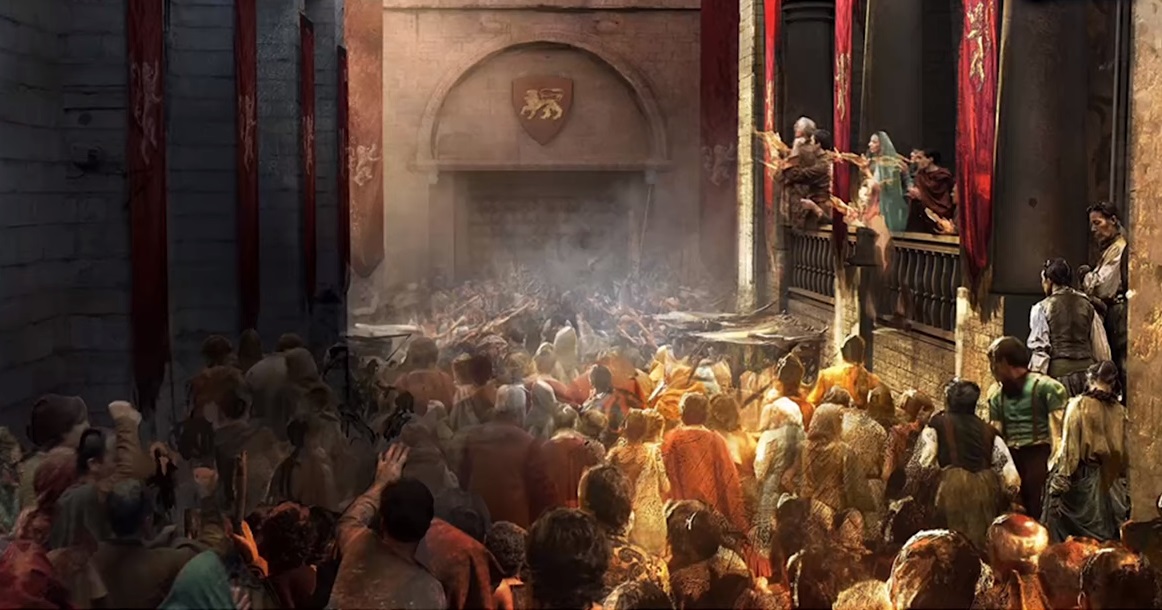Agitate (speech)
Agitate is a form of speech-giving made possible through the sage ability, Grassroots Movement. The character can gain the focused attention of a crowd of at least 20 people, provided they are already disgruntled or actively discussing an event. By delivering an impromptu speech, the character has a strong chance of directing the crowd to act according to their intentions.
To agitate, the character makes an intelligence or wisdom check (player's choice). Failure means the speech does not inspire the audience to act. Instead, the crowd will shout back their refusal, forcing the speaker to withdraw and relinquish control of the situation. If no others take the opportunity to address the crowd, the gathering will disperse. If guards or watchmen are present, they will recognize the character’s failure and generally refrain from dispersing the crowd. However, depending on the character's motives and the context of the speech, the agitator may still risk being arrested.
Success
If the character's check succeeds, the crowd will act as desired, but only within the boundaries of their original concern. For instance, a crowd already angry at city officials or a group of authorities can be incited to smash property, loot, attack officials or destroy public structures. However, if the crowd's concern revolves around starvation, their actions will focus on obtaining food, not unrelated violence. Similarly, a crowd seeking justice may be motivated to carry out a lynching, but they will not raid food stores or attack unrelated targets.
The dungeon master must assess the crowd’s existing motivations and ensure that the character's proposed solution aligns with those motivations. The actions of the crowd must remain consistent with their initial grievance, with the DM exercising judgment to interpret the scope and limits of what the crowd might reasonably do in response to the character's agitation.
Consequences
These should always be considered when the character successfully incites a crowd, especially if their actions result in crimes or even revolution. Inciting destruction, violence or rebellion will undoubtedly draw the attention of authorities, and the character may face punishment or reprisal. Conversely, inspiring a crowd to perform constructive acts, such as raising a dam to stop a flood, rallying to fight for a noble cause or embarking on a pilgrimage, is unlikely to provoke a negative reaction from officials or other observers.
Regardless of the action taken, the character must remain mindful that someone is always watching. The character’s face will likely be remembered, which could lead to future recognition and repercussions. To mitigate this risk, the character might take precautions, such as disguising themselves before addressing the crowd, escaping the area quickly after the event or carefully weighing the intensity of their speech against the consequences it may provoke.
Furthermore, a character with foresight may recognize agitation as a tool for advancing a larger political or cultural agenda. By using this skill strategically — delivering the right speech at the right time — a character could gradually build a sustained movement, ensuring their influence grows steadily and enduringly over time.
